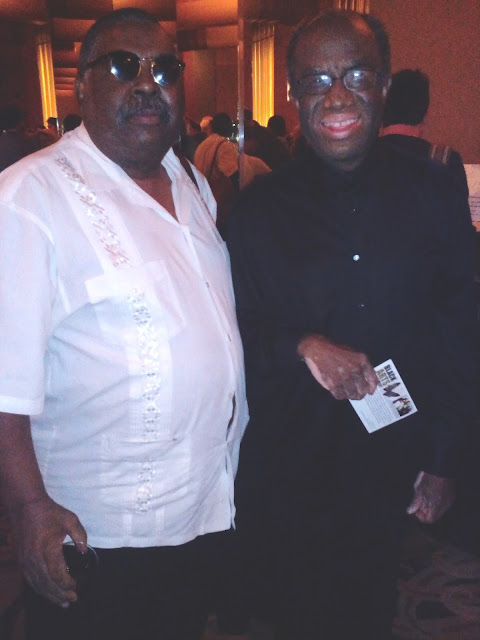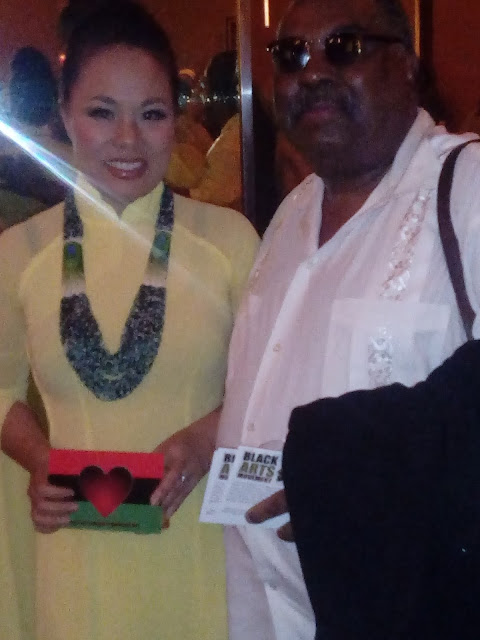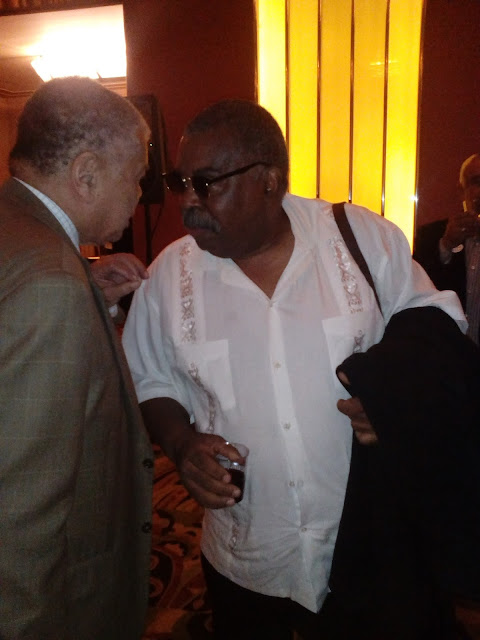Mr. Morgan was one of the rare Black conductors to rise to prominence, with guest appearances leading the top orchestras of St. Louis, Chicago, Los Angeles, Baltimore, New York and San Francisco during a career that spanned 40 years. He made his international debut at the Vienna State Opera in 1982, conducting Mozart’s “Abduction From the Seraglio” in the city where the composer spent much of his life, before an infamously fastidious and unforgiving audience. He later said his only goal was to get in and out of the State Opera without being booed. As it happened, he was invited back.
With its humor and self-deprecation, the comment was pure Morgan. In 2013, Joshua Kosman, the music critic of the San Francisco Chronicle, called him “a voluble, gregarious figure with easy charm and an irrepressible high-pitched giggle that can seem at odds with the gravitas associated with the stereotypical maestro.”
But, Kosman added that “there’s no doubt about the eloquence or artistic depth he can elicit from an orchestra in a wide range of repertory.”
In the manner of an older generation of conductors who came to an area and stayed put, Mr. Morgan spent the last 30 years of his life mostly in the Bay Area and its environs. He arrived in 1991 to become the music director of the Oakland Symphony. He also served as artistic director of the Oakland Youth Orchestra and was the music director of the Sacramento Philharmonic Orchestra (and the Sacramento Opera) from 1999 to 2015 as well as the artistic director of Festival Opera in Walnut Creek, Calif., for more than 10 seasons. He taught a graduate conducting course at the San Francisco Conservatory of Music and was music director at the Bear Valley Music Festival in California. He also conducted the San Francisco Ballet on several occasions.
“My goal is to do the things I like to do all in one place,” he told the San Francisco Chronicle in 1998. “I think it’s so much more rewarding to walk into the grocery store and have a little kid say, ‘You came to my school,’ or have the cashier say, ‘How are things at the symphony?’ ”
Michael DeVard Morgan, a native Washingtonian, was born on Sept. 17, 1957. His father, Willie DeVard Morgan, was a biologist, and his mother, Mabel Morgan, was a health researcher.
His father bought the family a piano for $10 when Michael was 6, and he began to play two years later. From then on, music became an obsession. By the age of 12, he was leading two orchestras, one at MacFarland Junior High School and the other (founded by Mr. Morgan) at the People’s Congregational Church.
In his early teens, while a student at McKinley High School, he was named the conductor of the D.C. Youth Orchestra. He attended the Oberlin Conservatory in Ohio, originally as a composition major, but never took his degree.
During his time at Oberlin, Mr. Morgan worked with conductors Seiji Ozawa and Leonard Bernstein at the Tanglewood Music Festival in Massachusetts. In late 1979, he accepted the position of apprentice conductor at the Buffalo Philharmonic.
The next year, he won the Hans Swarowsky Conducting Competition, which brought him international attention. In 1982, he became the assistant conductor of the St. Louis Symphony Orchestra under the direction of Leonard Slatkin and, in 1986, he took the same position with the Chicago Symphony Orchestra under Sir Georg Solti.
But Mr. Morgan showed little interest in the big career. “In Oakland,” he said in 1990, “we are trying something new: a orchestra that is being run from the education department outward. We are developing the orchestra as an educational resource that gives concerts.”
Increasingly, he grew interested in early education in classical music.
“Talk to people of whatever color in any professional orchestra and ask them where they started, and you’ll find that most of them started, as I did, in a public school somewhere,” he told the San Francicso Chronicle in 1998. “And if there’s not that possibility, then of course there’s not going to be people at the other end.”
He was dubious about what he called “Martin-Luther-King-Black- History-Month-yadda-yadda-yadda” concerts. “It’s impossible to maintain the respect of an orchestra if they think that the only reason you’re there is that they needed a Black conductor,” Mr. Morgan said.
Mr. Morgan was famously warmhearted to his colleagues and students. When he made his New York Philharmonic debut in 1992, Mr. Morgan included a piece by a gifted young composer, Daron Hagen.
“Michael himself chose to graciously share that all-important moment — and the spotlight — by premiering a new piece I had just written for them,” Mr. Hagen said in a telephone interview. “He launched new works by an entire generation of grateful composers.”
Despite his courtesy and friendliness, Mr. Morgan led a mostly private life, sharing his home with his mother and his sister, Jacquelyn Morgan, who survive him.
“Being a classical musician, being a conductor, being Black, being gay — all of these things put you on the outside, and each one puts you a little further out than the last one,” Mr. Morgan said in 2013. “So you get accustomed to constructing your own world because there are not a lot of clear paths to follow and not a lot of people that are just like you.”
Tim Page won the Pulitzer Prize for criticism in 1997 for his writings about music for The Washington Post. He is currently a distinguished visiting professor at the Peabody Institute of Johns Hopkins University.
Marvin X at the Oakland Symphony Notes from Vietnam concert
Marvin X attended the Oakland Symphony's concert Notes from Vietnam Friday evening at the elegant Paramount Theatre, at the invitation of his adviser Rt. Col. Conway Jones, Jr., a board member of the Oakland Symphony, who wanted Marvin X to connect with Conductor Micheal Morgan, since Michael is planning a concert in honor of the 50th Anniversary of the Black Panther Party, founded in Oakland, Ca, 1966.
It was a most beautiful concert featuring traditional Vietnamese music in harmony with the Oakland Symphony's orchestra, conducted by Maestro Micheal Morgan.
Vanessa was the hit with her haunting vocals and performance on traditional Vietnamese instruments backed by the Oakland Symphony Orchestra, including Vietnamese high school students . We think Vanessa stole the show!




 g
g

No comments:
Post a Comment